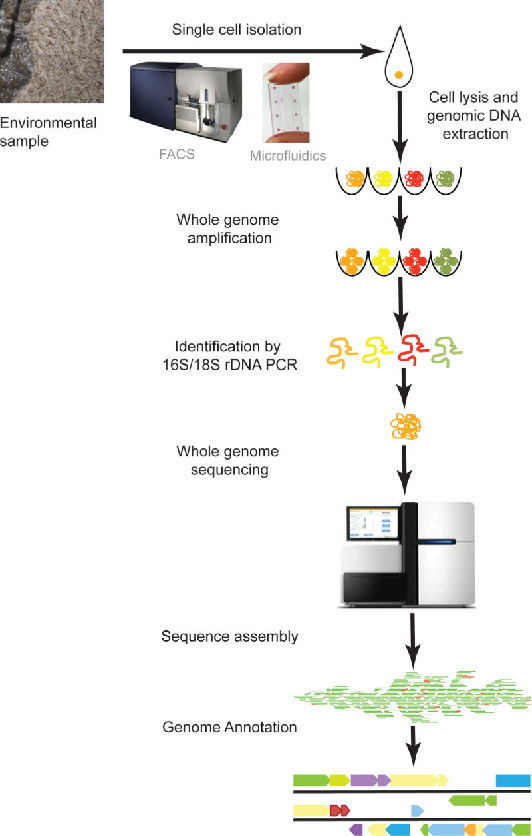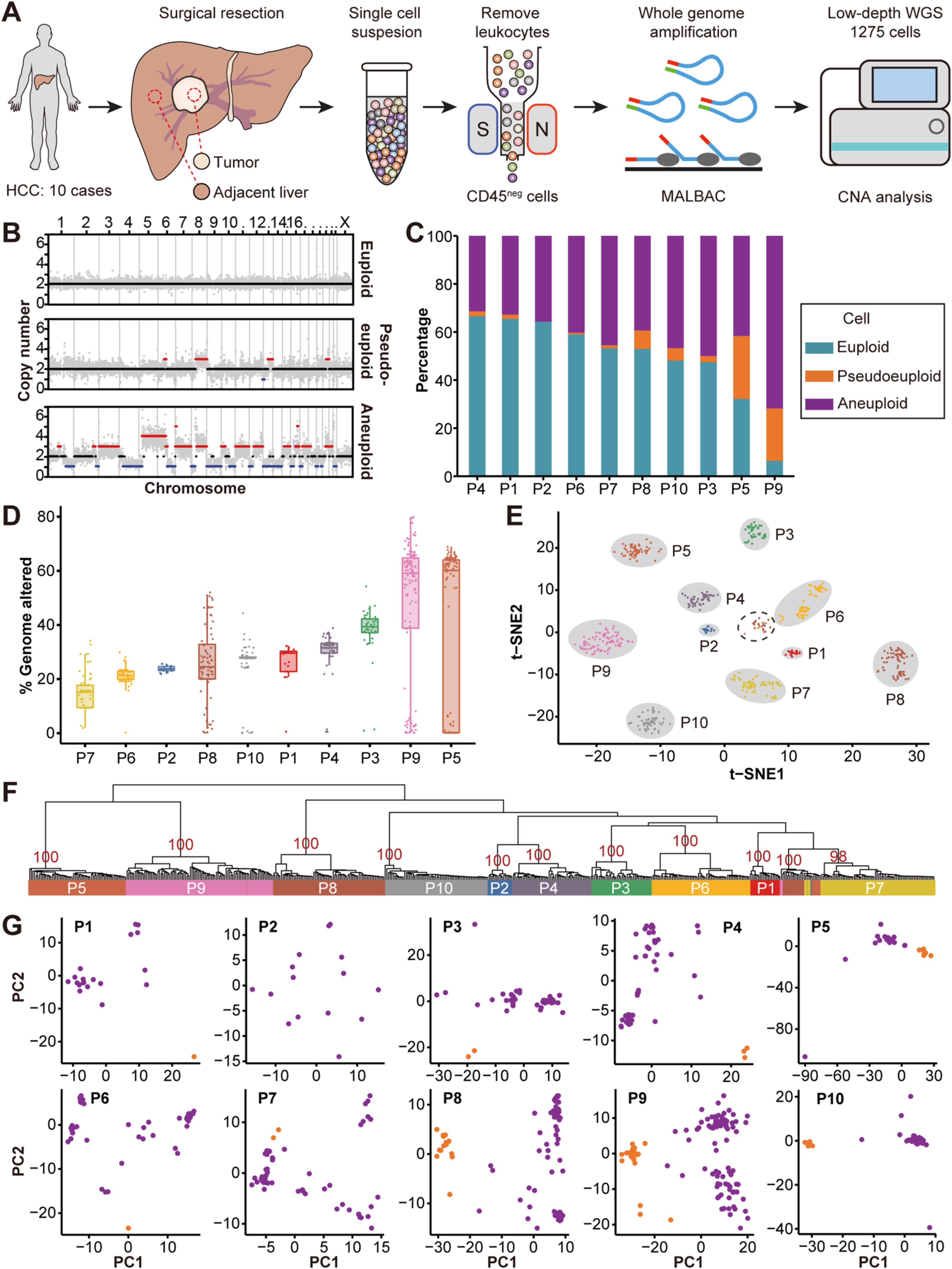Single Cell Genome Sequencing Service
- Single Cell Isolation: Individual cells are separated using techniques such as fluorescence-activated cell sorting (FACS), microfluidics, or manual micromanipulation. Droplet-based microfluidics and laser capture microdissection are also commonly employed for precision isolation.
- Whole Genome Amplification: Since the DNA content in a single cell is extremely limited, whole-genome amplification is performed using methods such as multiple displacement amplification (MDA), degenerate oligonucleotide-primed PCR (DOP-PCR), or multiple annealing and looping-based amplification cycles (MALBAC).
- Library Preparation and Sequencing: Amplified DNA undergoes library preparation, which includes fragmentation, adapter ligation, and quality control, followed by high-throughput sequencing using platforms like Illumina.
- Bioinformatics Analysis: Sequencing data is analyzed to reconstruct the single-cell genome, identify variants, detect copy number alterations, and infer structural variations.
-
Advanced Analysis Platform: MtoZ Biolabs established an advanced single cell genome sequencing service platform, guaranteeing reliable, fast, and highly accurate analysis service.
-
One-Time-Charge: Our pricing is transparent, no hidden fees or additional costs.
-
High-Data-Quality: Deep data coverage with strict data quality control. AI-powered bioinformatics platform integrates all single cell genome sequencing data, providing clients with a comprehensive data report.
Single cell genome sequencing service is used to analyze the genome within an individual cell, uncovering genomic variations, copy number alterations, and epigenetic features at a single-cell resolution. Unlike bulk genome sequencing, which aggregates genomic information from thousands or millions of cells, single cell genome sequencing isolates and sequences the DNA from a single cell, allowing researchers to capture cell-to-cell genomic variability with unparalleled resolution. Single cell genome sequencing can provide critical insights into genetic heterogeneity, rare cell populations, somatic mutations, structural variants, and epigenetic modifications that are often masked in bulk sequencing approaches. MtoZ Biolabs provides single cell genome sequencing service to help researchers to uncover the genomic variability and heterogeneity present in complex biological systems.

Yilmaz, S. et al. Current opinion in biotechnology. 2012.
Technical Principles
Single cell genome sequencing revolves around isolating individual cells, amplifying their genomic DNA, and subsequently sequencing it to obtain comprehensive genomic information. The process can be broken down into the following key steps:
Applications
Cancer Genomics
Single cell genome sequencing reveals intratumoral heterogeneity, identifies rare subclones, and tracks clonal evolution, providing insights into cancer progression, metastasis, and therapy resistance.
Developmental Biology
By analyzing the genomes of individual cells during embryonic development, single cell genome sequencing service helps map cellular lineage and understand the genetic regulatory mechanisms guiding cell differentiation.
Infectious Disease Research
Single cell genome sequencing can detect pathogen-host interactions at the single-cell level, revealing how infectious agents manipulate host cellular machinery.
Evolutionary Biology
By analyzing single-cell genomes from environmental samples, single cell genome sequencing uncovers microbial diversity, horizontal gene transfer events, and evolutionary adaptations.
Epigenetic Studies
Single cell genome sequencing provides insights into DNA methylation patterns, chromatin accessibility, and gene regulation in individual cells, when combined with single-cell epigenomics.
Neurological Research
Single cell genome sequencing aids in identifying genetic mosaicism in neurons, contributing to our understanding of neurodevelopmental and neurodegenerative disorders.
Why Choose MtoZ Biolabs?
Case Study
Single cell genome sequencing revealed the copy number alteration heterogeneity landscape in hepatocellular carcinoma cases.

Guo, Lin. et al. Gastroenterology. 2022.
What Could be Included in the Report?
1. Comprehensive Experimental Details
2. Materials, Instruments, and Methods
3. Total Ion Chromatogram & Quality Control Assessment (project-dependent)
4. Data Analysis, Preprocessing, and Estimation (project-dependent)
5. Bioinformatics Analysis
6. Raw Data Files
MtoZ Biolabs, an integrated Chromatography and Mass Spectrometry (MS) Services Provider, provides advanced proteomics, metabolomics, and biopharmaceutical analysis services to researchers in biochemistry, biotechnology, and biopharmaceutical fields. Our ultimate aim is to provide more rapid, high-throughput, and cost-effective analysis, with exceptional data quality and minimal sample consumption.
How to order?







